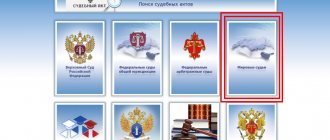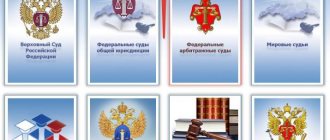We often hear now about the protection of personal secrets; there are also sanctions against the publication of information containing personal or family secrets. So let's figure out what is included in these two concepts, because these secrets are an element of the right to respect for private life, for violation of which the law provides for liability.
There are no clear definitions of the secrets in question in the legislation. But based on judicial practice, the following conclusion can be drawn:
What happened
It all started with a post by Ufa activist Elena Malafeeva. She wrote that “V.V. Bargan" is the owner of a "concentration camp for innocent animals" called Dobrota LLC.
As evidence, Elena attached photographs of mutilated animals and a screenshot from the page of 59-year-old Vladimir Bargan. True, the man in the photograph has nothing to do with Dobrota LLC.
Vladimir Bargan went to court and confirmed that he has nothing to do with the animal shelter. He demanded that the publication be removed because it discredited his name. The plaintiff also demanded moral compensation in the amount of 50 thousand rubles. and 9 thousand as reimbursement of costs for notary services.
Elena Malafeeva stated that she took the information with the photo from a page on VKontakte, which can be viewed by any user of the social network. The court sided with the defendant, because there were no violations in Elena’s actions. “The plaintiff himself posted a photo on his page on VKontakte. At the same time, he did not use the “viewing by a limited number of persons” service,” the court concluded.
In this case, the plaintiff incorrectly chose the subject of the claim and the method of protecting his rights. He appealed to Article 152.1 of the Civil Code, that is, he tried to protect his image. But the defendant legitimately used his photo, since it was posted on the VKontakte social network. By registering on a social network, we grant the right to others to use our photos.
As a method of defense, he needed to file an application for the protection of honor, dignity and business reputation, that is, appeal to Article 152 of the Civil Code.
According to our statistics on civil cases, over the past year, approximately half of the claims filed under Article 152 of the Civil Code were satisfied, that is, the plaintiff had a good chance of winning the case and receiving monetary compensation.
As for protecting your images on social networks and other resources. Before posting a photo, you must carefully read the text of the agreement with the site. When we use one of them, we accept its rules. The overwhelming majority of social networks contain in their rules an indication that the information we publish is publicly accessible. Otherwise, Yandex would be inundated with claims for the use of data, photos, videos, etc. After all, they index data on the Internet and display it in their services. So publishing your photos on open resources is like leaving your car in a dark alley with the doors open and the keys in the ignition. Something is bound to happen.
The State Duma presented 3 bills on the Internet. Changes can affect everyone
In the Russian Federation, the dissemination of information is carried out freely subject to the requirements established by the legislation of the Russian Federation.
The right to privacy is part of the fundamental rights of man and citizen and is enshrined in the 1993 Constitution of the Russian Federation. To some extent, it has been reflected in legislation since the mid-90s. Thus, it was determined that the inviolability of private life must be preserved when conducting operational-search activities (Article 5 of the Federal Law of August 12, 1995 No. 144-FZ “On Operational-Investigative Activities”), when conducting verification activities during the period of registration of admission to the state secret (Article 23 of the Law of the Russian Federation of July 21, 1993 No. 5485-I “On State Secrets”), etc.
However, the issues of protecting privacy and personal information have been subject to legislative regulation only since the mid-2000s. Thus, on July 27, 2006, Federal Law No. 149-FZ “On Information, Information Technologies and Information Protection” (hereinafter referred to as Federal Law No. 149-FZ) was adopted, which, among other things, secured privacy, as well as Federal Law No. 152-FZ “On Personal Data” (hereinafter referred to as Federal Law No. 152-FZ), which established a ban on the processing of personal data without the consent of the subject of personal data. Also, the current edition of the Civil Code of the Russian Federation regulates the protection of honor, dignity and business reputation, the protection of the image and private life of a citizen.
In accordance with Art. Art. 23 and 29 of the Constitution of the Russian Federation, everyone has the right to protect their honor and good name, and everyone is guaranteed freedom of thought and speech, as well as freedom of the media.
In accordance with Art. Art. 10 and 17 of Federal Law No. 149-FZ, information disseminated without the use of the media must include reliable information about its owner or about another person distributing information, in a form and volume that is sufficient to identify such a person. The owner of a website on the Internet is obliged to post on the website he owns information about his name, location and address, email address for sending the application specified in Art. 15.7 of Federal Law No. 149-FZ, and also has the right to provide for the possibility of sending this application by filling out an electronic form on a website on the Internet.
It is prohibited to disseminate information that is aimed at promoting war, inciting national, racial or religious hatred and enmity, as well as other information for the dissemination of which criminal or administrative liability is provided. It is also prohibited to distribute messages and materials of a foreign media outlet performing the functions of a foreign agent and (or) a Russian legal entity established by it without indicating that these messages and materials were created and (or) distributed by such persons.
Violation of the requirements of Federal Law No. 149-FZ entails disciplinary, civil, administrative or criminal liability in accordance with the legislation of the Russian Federation.
Persons whose rights and legitimate interests were violated in connection with the disclosure of restricted information or other unlawful use of such information have the right to apply in the prescribed manner for judicial protection of their rights, including claims for damages, compensation for moral damage, protection of honor, dignity and business reputation.
According to Art. 150 of the Civil Code of the Russian Federation life and health, personal dignity, personal integrity, honor and good name, business reputation, privacy, inviolability of home, personal and family secrets, freedom of movement, freedom to choose a place of stay and residence, the name of a citizen, authorship are considered intangible benefits that belong to a citizen from birth or by force of law, inalienable and not transferable in any other way.
In cases where the interests of a citizen require it, intangible benefits belonging to him can be protected, in particular, by the court recognizing the fact of violation of his personal non-property right, publishing a court decision on the violation, as well as by suppressing or prohibiting actions that violate or create a threat of violation personal non-property right or encroaching or creating a threat of encroachment on an intangible benefit.
In accordance with Art. 152 of the Civil Code of the Russian Federation, a citizen has the right to demand in court a refutation of information discrediting his honor, dignity or business reputation, unless the person who disseminated such information proves that it is true. The refutation must be made in the same way in which information about the citizen was disseminated, or in another similar way. In other cases, the procedure for refuting such information is established by the court.
A citizen in respect of whom information discrediting his honor, dignity or business reputation has been disseminated also has the right to demand compensation for losses and compensation for moral damage caused by the dissemination of such information.
At the request of interested parties, it is possible to protect the honor, dignity and business reputation of a citizen even after his death.
According to Art. 152.1 of the Civil Code of the Russian Federation, the publication and further use of a citizen’s image (including his photograph, as well as video recordings or works of fine art in which he is depicted) are allowed only with the consent of this citizen. After the death of a citizen, his image can only be used with the consent of the children and surviving spouse, and in their absence, with the consent of the parents. Such consent is not required in cases where:
- the use of the image is carried out in state, public or other public interests;
- the image of a citizen was obtained during filming, which is carried out in places open to the public or at public events (meetings, conventions, conferences, concerts, performances, sporting competitions and similar events), except for cases where such an image is the main object of use;
- the citizen posed for a fee.
In accordance with Art. 152.2 of the Civil Code of the Russian Federation, unless otherwise expressly provided by law, the collection, storage, distribution and use of any information about his private life, in particular information about his origin, his place of stay or residence, personal and family life, is not permitted without the consent of the citizen.
Exceptions include the collection, storage, distribution and use of information about the private life of a citizen in state, public or other public interests, as well as in cases where information about the private life of a citizen previously became publicly available, or was disclosed by the citizen himself or at his will.
In cases where information about the private life of a citizen, obtained in violation of the law, is contained in documents, video recordings or other tangible media, the citizen has the right to apply to the court to demand the removal of the relevant information or the seizure and destruction of copies of tangible media containing the relevant information, if Without their destruction, deleting the relevant information is impossible.
Federal Law No. 152-FZ defines the concept of personal data as any information relating to a directly or indirectly identified or identifiable individual (subject of personal data). Thus, this is a set of information that allows you to identify a specific person.
The operator carrying out the processing of personal data, in addition to state and municipal bodies, is recognized as legal entities and individuals who, independently or jointly with other persons, organize and (or) carry out the processing of personal data, as well as determining the purposes of processing personal data, the composition of personal data to be processed, and actions (operations) performed with personal data.
Processing of personal data is any action or set of such actions with personal data, including collection, recording, systematization, accumulation, storage, clarification (updating, changing), extraction, use, transfer (distribution, provision, access), depersonalization, blocking, deletion , destruction of personal data.
In accordance with Art. 7 of Federal Law No. 152-FZ, operators and other persons who have access to personal data are obliged not to disclose to third parties or distribute personal data without the consent of the subject of personal data, unless otherwise provided by federal law.
Art. 24 of Federal Law No. 152-FZ defines liability for violation of this Federal Law, which is expressed in the form of criminal, administrative, disciplinary and other liability provided for by the legislation of the Russian Federation.
Processing of personal data for the purpose of promoting goods, works, and services on the market by making direct contacts with potential consumers using means of communication, as well as for the purposes of political propaganda, is permitted only with the prior consent of the subject of personal data. The specified processing of personal data is considered to be carried out without the prior consent of the subject of personal data, unless the operator proves that such consent has been obtained.
Also, Russian legislation establishes restrictions regarding the dissemination of information among children.
Thus, Federal Law No. 436-F3 of December 29, 2010 “On the protection of children from information harmful to their health and development” (hereinafter referred to as Federal Law No. 436-F3) established the rules for media safety of children when distributing media products in Russia , printed, audiovisual products on all types of media, computer programs and databases, as well as information posted in information and telecommunication networks and mobile radiotelephone networks.
According to Art. 5 of Federal Law No. 436-F3, information prohibited for distribution among children includes information:
- encouraging children to commit actions that pose a threat to their life and (or) health, including causing harm to their health, suicide, or the life and (or) health of other persons, or aimed at inducing or otherwise involving children in committing such actions;
- capable of causing in children a desire to use narcotic drugs, psychotropic and (or) intoxicating substances, tobacco products, alcoholic and alcohol-containing products, take part in gambling, engage in prostitution, vagrancy or begging;
- substantiating or justifying the admissibility of violence and (or) cruelty or encouraging violent actions towards people or animals, except for the cases provided for by this Federal Law;
- containing images or descriptions of sexual violence;
- denies family values, promotes non-traditional sexual relationships and creates disrespect for parents and (or) other family members;
- justifying illegal behavior;
- containing obscene language;
- containing information of a pornographic nature;
- about a minor who has suffered as a result of unlawful actions (inaction), including last names, first names, patronymics, photos and videos of such a minor, his parents and other legal representatives, the date of birth of such a minor, an audio recording of his voice, his place of residence or place of temporary stay, place of study or work, other information that allows directly or indirectly to identify such a minor.
Information the distribution of which is limited to children of certain age categories includes information:
- presented in the form of an image or description of cruelty, physical and (or) mental violence (except for sexual violence), crime or other antisocial action;
- causing fear, horror or panic in children, including those presented in the form of an image or description in a degrading form of non-violent death, illness, suicide, accident, accident or catastrophe and (or) their consequences;
- represented as a depiction or description of sexual relations between a man and a woman;
- containing swear words and expressions that are not related to obscene language.
How to protect your rights?
According to Art. 12 of the Civil Code of the Russian Federation, the protection of civil rights is carried out by, among other things: restoring the situation that existed before the violation of the right, and suppressing actions that violate the right or create a threat of its violation; self-defense rights; compensation for losses; collection of penalties; compensation for moral damage; termination or change of legal relationship.
Now let's move directly to administrative responsibility.
Art. 13.11 of the Code of Administrative Offenses establishes liability for violation of the legislation of the Russian Federation in the field of personal data.
Thus, according to Part 1 of this article, the processing of personal data in cases not provided for by the legislation of the Russian Federation, or the processing of personal data incompatible with the purposes of collecting personal data, except for the cases provided for in Part 2 of Art. 13.11 of the Administrative Code entails a warning or the imposition of an administrative fine on citizens in the amount of 1 to 3 thousand rubles, on officials from 5 to 10 thousand rubles.
In accordance with Part 2 of Art. 13.11 of the Code of Administrative Offenses, the processing of personal data without the written consent of its owner for the specified actions (in cases where such consent is required), or the processing of personal data in violation of the requirements established by the legislation of the Russian Federation for the composition of information included in the said consent shall entail the imposition of an administrative fine on citizens in the amount of 3 to 5 thousand rubles, for officials from 10 to 20 thousand rubles.
According to Part 6 of Art. 13.11 of the Code of Administrative Offenses, failure by the operator, when processing personal data without the use of automation tools, to comply with the conditions that ensure the safety of personal data when storing tangible media of personal data and exclude unauthorized access to them, if this resulted in unlawful or accidental access to personal data, their destruction, modification, blocking, copying, provision, distribution, or other unlawful actions in relation to personal data shall entail the imposition of an administrative fine on citizens in the amount of 700 rubles. up to 2 thousand rubles, for officials from 4 to 10 thousand rubles.
Article 13.36 of the Code of Administrative Offenses of the Russian Federation establishes liability for violation by the owner of an audiovisual service of the established procedure for distributing information among children that is harmful to their health and (or) development.
Thus, violation by the owner of an audiovisual service of the established procedure for distributing information among children that is harmful to their health and (or) development entails the imposition of an administrative fine on citizens in the amount of 3 to 5 thousand rubles, on officials from 30 to 50 thousand rubles .
Repeated commission of the specified administrative offense entails the imposition of an administrative fine on citizens in the amount of 5 to 10 thousand rubles, on officials from 50 to 100 thousand rubles.
Article 13.14 of the Code of Administrative Offenses of the Russian Federation establishes liability for the disclosure of information with limited access.
Thus, disclosure of information, access to which is limited by federal law, by a person who has gained access to such information in connection with the performance of official or professional duties, except for the cases provided for in Part 1 of Art. 14.33 of the Code of Administrative Offenses of the Russian Federation entails the imposition of an administrative fine on citizens in the amount of 500 rubles. up to 1 thousand rubles, for officials from 4 to 5 thousand rubles.
Criminal liability is provided in the following cases:
1. Slander.
In accordance with Art. 128.1 of the Criminal Code of the Russian Federation, libel, that is, the dissemination of knowingly false information discrediting the honor and dignity of another person or undermining his reputation, is punishable by a fine of up to 500 thousand rubles. or in the amount of wages or other income of the convicted person for a period of up to 6 months. or compulsory work for up to 160 hours.
Defamation contained in a public speech, publicly displayed work or media is punishable by a fine of up to 1 million rubles. or in the amount of wages or other income of the convicted person for a period of up to 1 year, or by compulsory work for a period of up to 240 hours.
Slander committed using one's official position is punishable by a fine of up to 2 million rubles. or in the amount of wages or other income of the convicted person for a period of up to 2 years, or by compulsory work for a period of up to 320 hours.
Slander that a person suffers from a disease that poses a danger to others, as well as slander associated with accusing a person of committing a crime of a sexual nature, is punishable by a fine of up to 3 million rubles. or in the amount of wages or other income of the convicted person for a period of up to 3 years, or by compulsory work for a period of up to 400 hours.
Defamation combined with accusing a person of committing a grave or especially grave crime is punishable by a fine of up to 5 million rubles. or in the amount of wages or other income of the convicted person for a period of up to 3 years, or by compulsory work for a period of up to 480 hours.
2. Violation of privacy.
According to Art. 137 of the Criminal Code of the Russian Federation, illegal collection or dissemination of information about the private life of a person, constituting his personal or family secret, without his consent, or dissemination of this information in a public speech, publicly displayed work or the media is punishable by a fine of up to 200 thousand rubles. or in the amount of wages or other income of the convicted person for a period of up to 18 months, or compulsory work for a period of up to 360 hours, or correctional labor for a period of up to 1 year, or forced labor for a period of up to 2 years, or arrest for a period of up to 4 months, or imprisonment for a term of up to 2 years.
Illegal dissemination in a public speech, publicly displayed work, media or information and telecommunication networks of information indicating the identity of a minor victim under 16 years of age in a criminal case, or information containing a description of the physical or mental suffering he received in connection with the crime resulting in harm to the health of a minor, or mental disorder of a minor, or other grave consequences, is punishable by a fine in the amount of 150 to 350 thousand rubles. or in the amount of wages or other income of the convicted person for a period of 18 months. up to 3 years, or deprivation of the right to hold certain positions or engage in certain activities for a period of 3 to 5 years, or forced labor for a term of up to 5 years, or arrest for a term of up to 6 months, or imprisonment for a term of up to 5 years.
3. Violation of the confidentiality of correspondence, telephone conversations, postal, telegraph or other messages.
In accordance with Art. 138 of the Criminal Code of the Russian Federation, violation of the secrecy of correspondence, telephone conversations, postal, telegraph or other messages of citizens is punishable by a fine of up to 80 thousand rubles. or in the amount of wages or other income of the convicted person for a period of up to 6 months, or by compulsory work for a period of up to 360 hours, or by correctional labor for a period of up to 1 year.
4. Illegal access to computer information.
According to Art. 272 of the Criminal Code of the Russian Federation, unlawful access to legally protected computer information (information (messages, data) presented in the form of electrical signals, regardless of the means of their storage, processing and transmission), if this act entailed the destruction, blocking, modification or copying of computer information, is punishable a fine of up to 200 thousand rubles. or in the amount of wages or other income of the convicted person for a period of up to 18 months, or by correctional labor for a term of up to 1 year, or by restriction of freedom, forced labor or imprisonment for a term of up to 2 years.
The same act, which caused major damage or was committed out of selfish interest, is punishable by a fine in the amount of 100 to 300 thousand rubles. or in the amount of wages or other income of the convicted person for a period of 1 to 2 years, or correctional labor for a period of 1 to 2 years, or restriction of freedom, forced labor or imprisonment for a term of up to 4 years.
The specified acts committed by a group of persons by prior conspiracy or by an organized group or by a person using their official position are punishable by a fine of up to 500 thousand rubles. or in the amount of wages or other income of the convicted person for a period of up to 3 years with deprivation of the right to hold certain positions or engage in certain activities for a period of up to 3 years, or restriction of freedom for a term of up to 4 years, or forced labor or imprisonment for a term of up to 5 years .
The specified acts, if they entailed grave consequences or created a threat of their occurrence, are punishable by imprisonment for a term of up to 7 years.
If you want to maintain privacy, write about it
The court referred to the Rules of Use of the VKontakte website. If a user posts any information on a social network, he understands and agrees that any user has access to this data.
“The court was not provided with information that on the plaintiff’s personal page there was an indication of established restrictions and privacy rules regarding information, including images, published by this user,” the appellate court noted in its ruling. Now, by the way, Bargan’s page is open and photographs periodically appear on it. There are no posts prohibiting the use of photographs.
Big brother in social networks: how Roskomnadzor is trying to control the Internet in Russia
What information constitutes a personal secret?
This information:
- having a personal nature (about relationships, and not necessarily in the intimate sphere, habits, events in life, meetings, views, passions, inclinations, physical disabilities, a criminal record that has already been withdrawn or expunged, mental and other illnesses, etc.);
- the disclosure of which the person considers unacceptable and takes efforts (measures) to maintain secrets.
The secrecy of correspondence and other communications may be a personal secret when the person himself considers certain information secret and cares about maintaining confidentiality. Thus, we can say that the leading characteristic of the concept of “personal secret” is the person’s desire to keep data secret.
From which we can conclude that information cannot be considered a personal secret if:
- the person took action to make the information publicly available, and this was done of his own free will. For example, information was previously published by the citizen himself in the media. In such cases they can no longer be a secret;
- the person will disclose information as required by law. This is, for example, information about the income and property of persons applying for government positions; such information is open.









